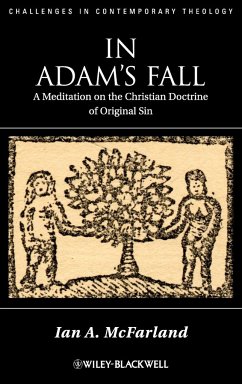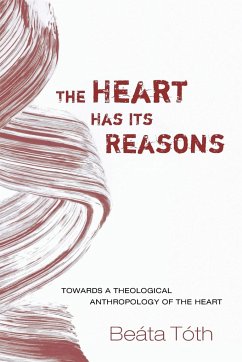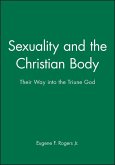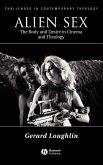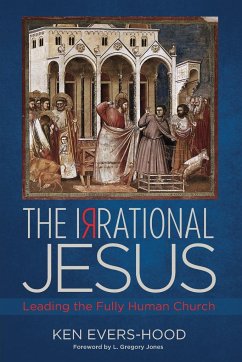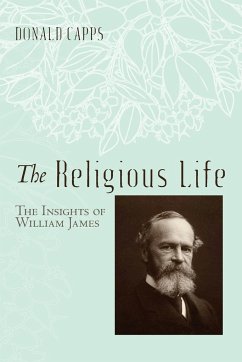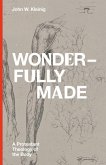Few doctrines of Christian teaching are more controversial than original sin. For how is it possible to affirm the universality of sin without losing sight of the distinct ways in which individuals are both responsible for and suffer the consequences of sinful behavior? In considering the Christian doctrine of original sin, McFarland challenges many prevailing views about it. He shows us that traditional Christian convictions regarding humanity's congenital sinfulness neither undermine the moral accountability of sin's perpetrators nor dampen concern for its victims. Responding to both historic and contemporary criticism of the doctrine, In Adam's Fall reveals how the concept of original sin is not only theologically defensible, but stimulating and productive for a life of faith. Drawing on both the classical formulations of Augustine and the Christology of Maximus the Confessor, McFarland proposes a radical reconstruction of the doctrine of original sin - one that not only challenges contemporary Western visions of human autonomy but emphasizes the integrity of each individual called by God to a unique and irreplaceable destiny. Engagingly written and infused with scholarly sophistication, In Adam's Fall offers refreshingly original insights into the contemporary relevance of a doctrine of Christian teaching that has inspired fierce debate for over 1,500 years.
Hinweis: Dieser Artikel kann nur an eine deutsche Lieferadresse ausgeliefert werden.
Hinweis: Dieser Artikel kann nur an eine deutsche Lieferadresse ausgeliefert werden.
"Modest in length, but rich in substance ... eventhose who demur from McFarland's thesis will learn much froma work of competent theology which takes seriously and strives toprotect key components in Augustine's understanding oforiginal sin." (Evangelical Quarterly, 2 April2012)
"Written from an ecumenical Reformed perspective heavilyindebted to Augustine and arguably Barth, the book's strengthlies in its sophisticated argument in favor of Augustine'senduring relevance to ecclesial life generally and the doctrine oforiginal sin specifically, especially the illuminating discourse onwilling which paints a surprisingly complex view of the will inconcrete acts of sin." (Religious StudiesReview, 1 December 2011)
"Overall, In Adam's Fall is an engaging andhistorically-informed reflection on a difficult aspect of Christianteaching that stimulates constructive dialogue and furtherexamination." (Studies in Religion, 2012)
"Libraries that support advanced classes in theology will findthis a worthwhile addition. Recommended. Upper-level undergraduatesand above." (Choice, 1 May 2011)
"Engagingly written and infused with scholarly sophistication.In Adam's Fall offers refreshingly original insghts into thecontemporary relevance of a doctrine of Christian teaching that hasinspired fierce debate for over 1,500 years." (Zentrum fürAugustinus-Forschung, 2011)
"While unapologetically academic in style, I found this to bemost engagingly written and there are few academic books overrecent years that have brought me as much pleasure and provoked mythinking to such a degree." (Regent's Reviews, 1 April 2011)"A must read for anyone who thinks seriously about questions of sinand what it means to be human. McFarland deftly explores historicaltheological texts and contemporary scientific theory to paint apicture of human beings as creatures whose identity is rooted in anessential unity and thus a common destiny ... This book will be aclassic which will find a place in classes about doctrine,theological anthropology and theology classes moregenerally."
--Stephen G. Ray Jr, Garrett-Evangelical TheologicalSeminary
"Historically sensitive and dogmatically astute, this bookoffers a persuasive commendation of an element of Christiandoctrine which has become increasingly strange in modern theology."In Adam's Fall is a work of rare theological andspiritual penetration.'
-- John Webster, King's College, Aberdeen
"Written from an ecumenical Reformed perspective heavilyindebted to Augustine and arguably Barth, the book's strengthlies in its sophisticated argument in favor of Augustine'senduring relevance to ecclesial life generally and the doctrine oforiginal sin specifically, especially the illuminating discourse onwilling which paints a surprisingly complex view of the will inconcrete acts of sin." (Religious StudiesReview, 1 December 2011)
"Overall, In Adam's Fall is an engaging andhistorically-informed reflection on a difficult aspect of Christianteaching that stimulates constructive dialogue and furtherexamination." (Studies in Religion, 2012)
"Libraries that support advanced classes in theology will findthis a worthwhile addition. Recommended. Upper-level undergraduatesand above." (Choice, 1 May 2011)
"Engagingly written and infused with scholarly sophistication.In Adam's Fall offers refreshingly original insghts into thecontemporary relevance of a doctrine of Christian teaching that hasinspired fierce debate for over 1,500 years." (Zentrum fürAugustinus-Forschung, 2011)
"While unapologetically academic in style, I found this to bemost engagingly written and there are few academic books overrecent years that have brought me as much pleasure and provoked mythinking to such a degree." (Regent's Reviews, 1 April 2011)"A must read for anyone who thinks seriously about questions of sinand what it means to be human. McFarland deftly explores historicaltheological texts and contemporary scientific theory to paint apicture of human beings as creatures whose identity is rooted in anessential unity and thus a common destiny ... This book will be aclassic which will find a place in classes about doctrine,theological anthropology and theology classes moregenerally."
--Stephen G. Ray Jr, Garrett-Evangelical TheologicalSeminary
"Historically sensitive and dogmatically astute, this bookoffers a persuasive commendation of an element of Christiandoctrine which has become increasingly strange in modern theology."In Adam's Fall is a work of rare theological andspiritual penetration.'
-- John Webster, King's College, Aberdeen

